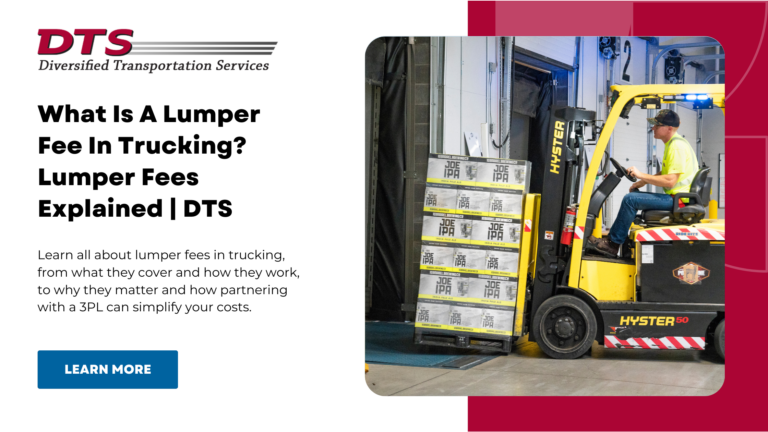
Shipping is more than simply getting goods from point A to point B — it’s a complex logistical process that sometimes comes with unexpected costs. Charges like lumper fees can come as a surprise, but knowing what they are and when to expect them can help you manage your budget and keep things running smoothly.
Here’s a quick guide to lumper fees and how they fit into the bigger picture of shipping costs.
To understand what a lumper fee in trucking is, you need to know what a lumper is and what they do.
A lumper is someone who unloads cargo when trucks arrive at a warehouse. They’re responsible for handling goods and moving them to the right areas.
Lumpers are usually provided by third-party companies and hired by a warehouse or shipping business to move large quantities of freight each day. Lumpers are particularly common in warehouses that deal with food and groceries. Unloading frozen or perishable cargo requires special knowledge and handling, which lumpers acquire through training and hands-on experience.
Warehouses use lumpers because they help:
A lumper fee in trucking operations is the price you pay for lumper services at a warehouse. You need to pay lumper fees if a delivery site uses lumpers to help load and unload your trailers. It’s crucial that you check this beforehand to avoid surprises and potential delays.
Truck drivers usually pay lumper fees in person after their cargo has been unloaded. However, drivers are not personally liable for lumper fees and should not be expected to pay them out of pocket.
This is actually a legal matter in the US: Title 49 of the United States Code, §. 14103 addresses the matter of lumper fee reimbursement. Any business shipping goods should be aware of this.
Lumper fees vary depending on the service provider: they can range anywhere from $25 to several hundred dollars. The final cost is generally determined once a lumper has finished unloading a truck. This ensures that any additional charges for the following tasks are included in the price charged:
Lumper fees depend on the contract between a lumper service and a shipper, carrier, or warehouse. They’re also based on the labor and hours involved in the lumpers’ work.
The payment process for a lumper fee in trucking usually follows this pattern:
Lumper services can be a huge asset to a smooth and efficient shipping process. However, understanding the fees involved is vital to avoid extra surprise costs or disputes that cause disruptions.
Working with a third-party logistics provider (3PL) can help your business manage lumper fees and other extra shipping costs. A trusted 3PL will advise you on potential lumper prices and help you navigate any associated issues.
DTS is a shipping logistics company with more than 33 years of experience and a dedicated team ready to help you ship cargo more efficiently than ever. To work with DTS as your 3PL partner, get in touch today.
Whether you're a company looking to improve one facet of your supply chain, your entire supply chain, or simply looking for a transportation and logistics consultation, we can help.